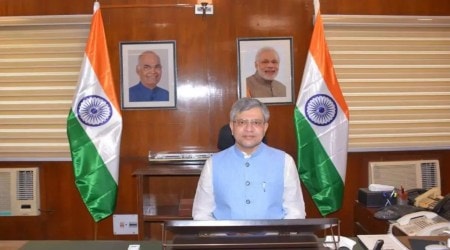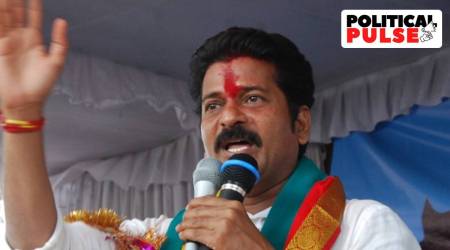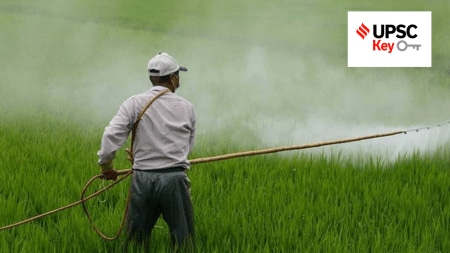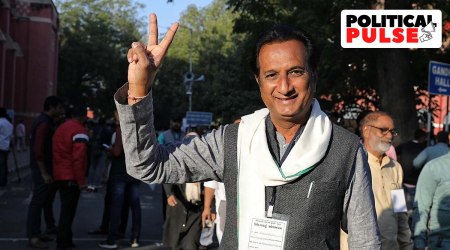A massive rally by the Bangladesh Nationalist Party (BNP) in Dhaka Saturday has signalled that the main opposition party has reorganised on the ground despite a severe government crackdown against it, channeling economic grievances and popular resentment against the perceived authoritarian style of Prime Minister Sheikh Hasina, a three-term incumbent.
Month of rallies
Thousands of people attended the Dhaka rally, the culmination of more than a month of such protests by the BNP across the country — in Rajshahi, Chittagong, Mymensingh, Khulna, Rangpur, Barisal, Faridpur, Sylhet and Comilla.
At every rally, including the one at Dhaka, two chairs on stage were kept empty – one for party leader and chairperson Khaleda Zia, who was jailed for seven years in 2017, was released in 2020 after her sentence was suspended on condition that she would not leave Dhaka, and has been unwell since last year; the other for acting chairperson Tarique Rehman, her son, who lives in London in self-exile after his life sentence in the 2004 Hasina assassination attempt case.
At the Dhaka rally, BNP set out a list of 10 demands, which include: to oversee next year’s national election, the formation of a neutral caretaker government, which was provided for in the Constitution in 1996 but was later abolished by the Sheikh Hasina government; the formation of a neutral Election Commission by the caretaker government for a level playing field for all parties; the abolition of EVMs; cancelling the convictions of all opposition and religious leaders; and withdrawal of “false cases” against opposition leaders.
All seven BNP parliamentarians have resigned, accusing the Awami League of “stealing” the 2018 election.
Government response
The month-long mobilisation has raised the political heat in Bangladesh ahead of the 2023 national elections. Neither the government nor the Awami League has responded officially to the demands. Awami League members have, however, questioned what the BNP was doing in Parliament for four years if they believed the election was rigged.
In the weeks leading up to the Dhaka rally, several BNP members were arrested from across the country. One person died in a clash with the police outside the party office.
A day before the rally, two top BNP leaders, party secretary general Mirza Fakhrul Islam Alamgir and a member of the standing committee, Mirza Abbas, were arrested. The police, however, granted permission for the rally .
The huge response to the BNP rally seems to have put the government on the political backfoot, at least for now.

BNP’s lost decade
Suffering from a leadership vacuum, and discredited nationally for being allied with the Jamaat-i-Islami, a party that collaborated with the Pakistan Army to try and scuttle the liberation of Bangladesh, the BNP has drifted through the last 15 years without winning an election.
Its dalliance with the JI and other Islamist parties had lost it the support of a large section of secular Bangladeshi voters. The party boycotted the 2014 election after several months of strikes and protests that paralysed the country on the same demand as now — a caretaker government to conduct the election. In 2012, both parties had opposed the proceedings of the war crimes tribunal for actions during the 1971 war of liberation.
The tribunal handed down death sentences to at least nine JI members and two of the BNP. Violent protests by the JI segued into the BNP’s agitation, setting the stage for the boycott. Hasina won the election, in which the voter turnout was a dismal 39.6 per cent, as opposed to 87 per cent in the 2008 election.
Months before the 2018 election, the party’s attempt to make a comeback received a huge setback with Khaleda Zia’s conviction on charges of siphoning off crores of Bangladeshi taka that foreign donors had sent for an orphanage while she was PM. She is also convicted in several other corruption cases, all of which she has rejected as fabricated.
The BNP managed to secure only 13 per cent of the votes, winning seven seats, and was written off as a spent force even though there was widespread resentment against the Hasina government’s “one party rule”.
Bangladesh’s economic downturn
However, the BNP senses new opportunity in the economic downturn in Bangladesh besides the widespread resentment against the Awami League accumulated over its 15 years in office. The government blames the pandemic and Russia’s war in Ukraine for the disruption of its economic success story.
In November, responding to an appeal from the Hasina government, the International Monetary Fund agreed to a $ 4.5 bn bailout package.
However, critics of the government say that it is not just the war, but poor financial management, wastage of resources on mega infrastructure projects such as the Padma bridge, corruption, and flight of capital from the country that have led to Bangladesh joining the ranks of Sri Lanka and Pakistan and becoming the third country in the region that will be handheld by the IMF over the next few years.
In recent weeks, attention has focussed on the S Alam Group and its close relationship with the Hasina government. Founded by a relative of a former Awami league politician, S Alam Group is one of the biggest business houses of the country. According to the Daily Star, “its interests range from commodity trading to fishery, from construction materials to real estate, from textiles to media, from intercity buses to shipping, and from power and energy to banks and insurance”. The group is reported to have taken massive loans from Islami Bank, Bangladesh’s largest private sector bank, in which it has 26.7 per cent stakes through its companies. Hasina has ordered an inquiry into how the group managed to obtain such an “excessive” loan. It has been reported that the group has taken the money out of the country to invest in real estate abroad.
From being her strongest suit so far, Bangladesh’s economy could turn into Hasina’s Achilles’ Heel, especially when the IMF conditions kick in and add to the greivances against the government.
India and Bangladesh
Delhi’s proximity to the Hasina government is no secret. From India’s point of view, she has stood steadfast against Islamist forces and Pakistan’s alleged attempts at radicalisation in Bangladesh. She also acted swiftly on violence against minorities, putting aside her government’s reservations about the Citizenship Amendment Act of 2019.
By contrast, Khaleda Zia’s prime ministership from 2001 to 2006 does not evoke pleasant memories in Delhi. But India’s open support of the Awami League has made both Delhi and Hasina unpopular in Bangladesh. Her opponents see Delhi as backing a leader who has undemocratic tendencies, and her as cosying up to a ‘Hindutva government’ whose political language is seen as embedded with invectives against Bangladeshis.
Over the coming months, depending on how much momentum the opposition’s pre-election moves gather, Delhi will need to reassess its positioning vis a vis the two main parties in Bangladesh.









